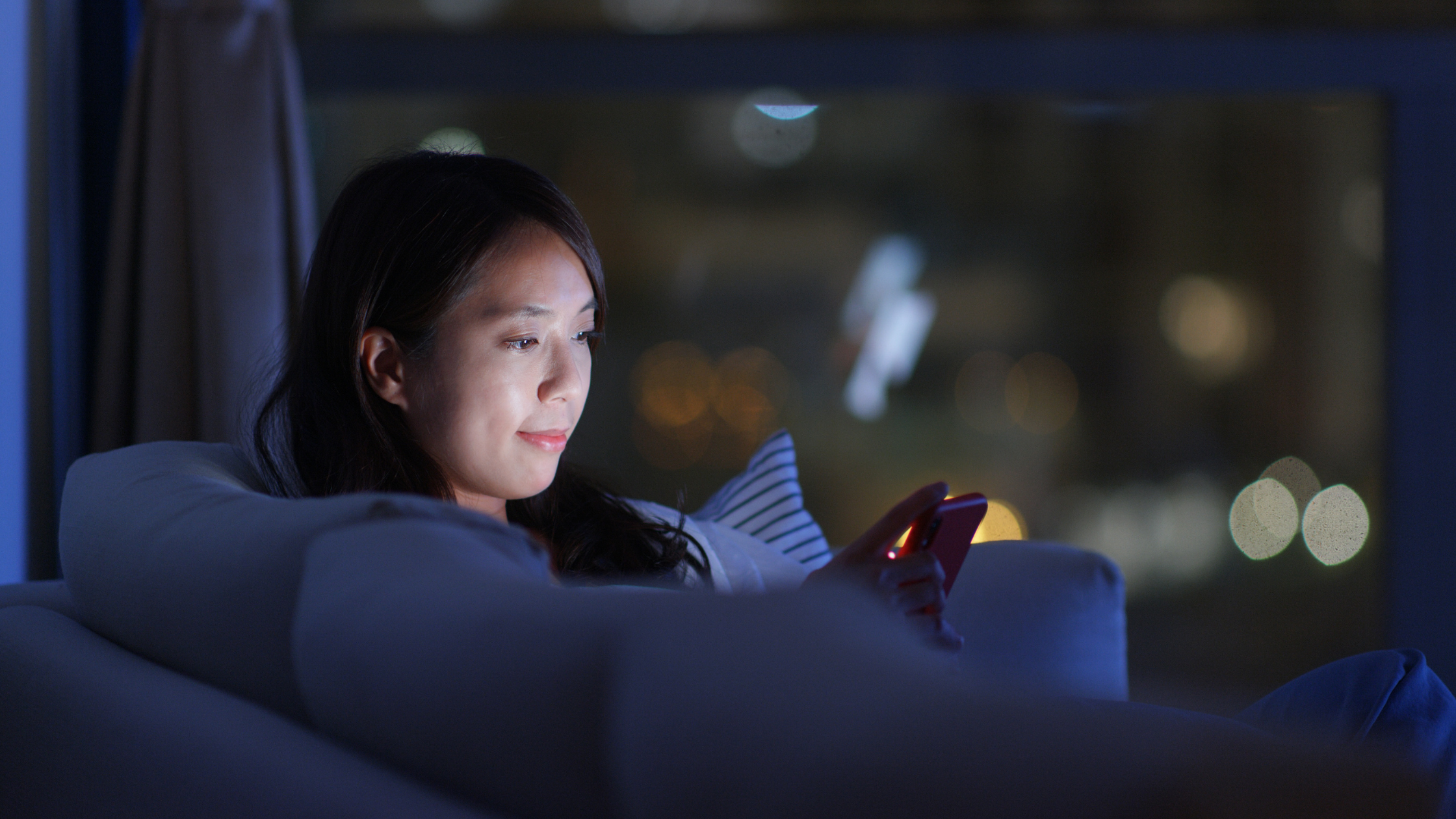
Getting a good night's rest requires cooperation and coordination of hormones released from your brain. One of the key hormones required for getting good sleep is melatonin. Melatonin is released when your eyes sense low light. That triggers a cascade of other hormones that help your body prepare for bed.
When this process is interrupted, then you may experience challenges with falling asleep. Disruption can happen when you expose your eyes to high levels of light late at night. Screen from cell phones, tablets, and televisions can contribute to this. Continue reading to learn about the effect that blue light has on sleep, and how you can reduce the amount disruption to your melatonin release.
What is blue light?
The world is charged with electromagnetic waves. These include radio waves, magnetic waves, and visible light. The longer the wave is, the less energy that it will transmit. Blue light, is a part of the visible light spectrum that makes up the rainbow (Red, Orange, Yellow, Green, Blue, Indigo, Violet). Waves outside of this part of the spectrum are not visible but are transmitted in other ways.
Blue light is a shorter, higher frequency wave. This means that it transmits a lot of energy and stimulates the brain. The effect of blue light is almost as much as ultraviolet, or UV waves, which are emitted by the sun and can cause serious skin damage and cancers. This demonstrates the intensity of blue light and just how much energy it carries.
What are common sources of blue light?
Blue light is emitted from a variable of sources. One major source of blue light is sun. The lightbulbs in your home also emit blue light, including fluorescent and incandescent light bulbs. So blue light is any source of light that is around you, in your home, and in the natural environment. One of the largest sources of blue light that humans specifically are exposed to come from light-emitting diode, or LED. This includes cell phones, laptops, tablets, televisions, and any other screen that you are exposed to throughout your day. The intensity of blue light in these devices is stronger than what you would get from the other sources because it's so highly concentrated.
How does blue light interrupt melatonin release?
Blue light is harmful to your eyes and melatonin release. Your eyes are made up of various different cells, including the retina, which is a group of specialized cells in the back of your eye. There is protection against damaging lights for the retina, but not for blue light. The amount of blue light released from the sun could be damaging, however, the most damage comes from electronic devices due to the proximity of range and duration.
The retina is the main control for the release of melatonin. When light hits the retina, it signals to the brain to stop releasing melatonin. This is what happens in the morning when sunlight hits your eyes, and you begin to stir. This is also why it is highly recommended to start your day with a walk or some sort of sun exposure that directly hits your eyes. It can help you wake up for the day and jumpstart the release of cortisol, which is a stress hormone that directs the release of other hormones required to begin your day.
Late at night, however, when the sun goes down and light stops hitting the retina, then your brain begins to release melatonin. This shuts down different parts of your body, including your digestive system and reduces your blood pressure, temperature, and heart rate so you can have a peaceful night of sleep. This release of melatonin is dependent on continued reduction in light exposure. So when you use a cell phone or tablet late at night, the exposure to blue light interrupts the natural release of melatonin and can delay sleep onset.
Therefore, if you ever have trouble getting to sleep, it may be due to the fact that you are using electronics too close to bedtime.
How to reduce blue light exposure?
If you want to get a good night's rest, it is important that you reduce your exposure to blue light late at night. Experts recommend putting down the electronics at least an hour before bed. This gives your brain enough time to produce enough melatonin to go to sleep.
If you enjoy reading before bed, physical books are always the best choice. They don't emit any light whatsoever, and are a relaxing activity that does not overstimulate your brain. However, if electronic books are more convenient or more your preference, you can set the settings to night mode. They put a red glare over the screen and reduce the amount of brightness. This reduces the impact that that blue light may have on melatonin release.
If you like to sleep with the TV on, also make sure that the settings are turned to a lower brightness and backlight. That will help dissipate the amount of blue light so that your melatonin release is not disrupted. Also, the amount of blue light emitted by TV is not as intense as cell phones or tablets so you may not be as severely impacted.
Try reducing your blue light exposure, but if you are still experiencing sleep challenges, then the underlying reason may be more severe. Click the orange button below to take a free online sleep test and talk with one of our sleep health professionals.
https://www.sleepfoundation.org/covid-19-and-sleep/coronasomnia

